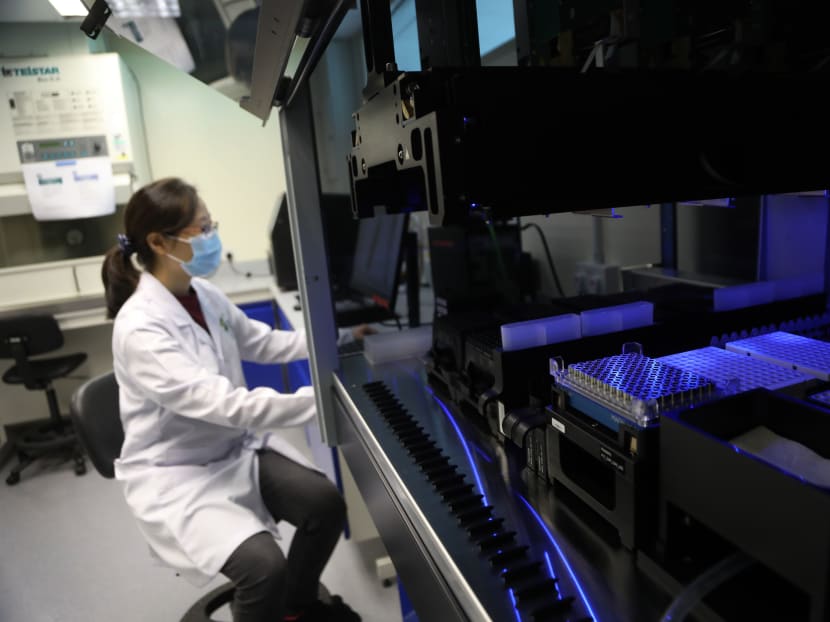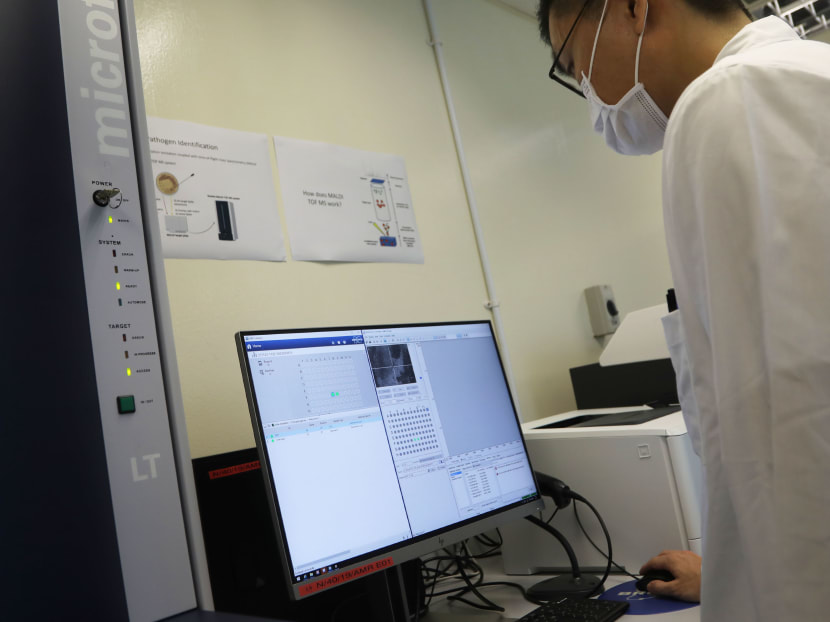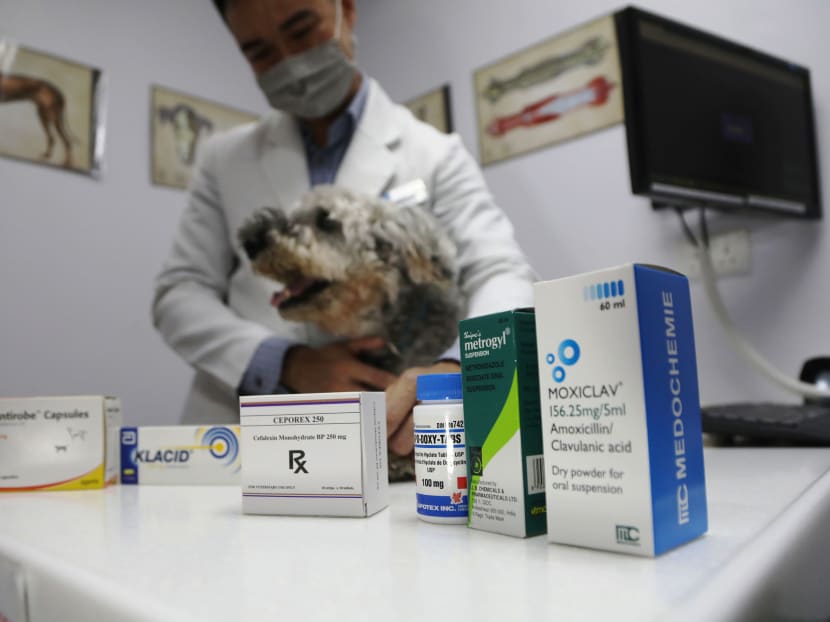Vets in Singapore get guidelines on proper drug use to tackle antibiotic-resistant bacteria among pets
SINGAPORE — A set of guidelines on the use of antimicrobial drugs for pets has been launched by the Animal & Veterinary Service (AVS) and the Singapore Veterinary Association. It is the very first national guidelines addressing the responsible use of antibiotics for pets.
- The Animal & Veterinary Service (AVS) has launched guidelines for the use of antimicrobials on pets
- The guidelines were developed in consultation with the veterinary community in Singapore
- Some of them relate to when antibiotics should be prescribed for various animal species, and the choice and length of treatment
- AVS said that resistance to antibiotics is a “major global threat to people, animals and the environment” and will review guidelines as new developments arise
SINGAPORE — A set of guidelines on the use of antimicrobial drugs for pets has been launched by the Animal & Veterinary Service (AVS) and the Singapore Veterinary Association. It is the very first national guidelines addressing the responsible use of antibiotics for pets.
AVS, a cluster of the National Parks Board, said in a media statement on Monday (Nov 22) that the guidelines will guide veterinarians here on good prescribing practices when giving antibiotics to domesticated animals.
Its “ultimate goal” is to optimise the use of antimicrobials and slow the development of antimicrobial resistance, AVS said.
Antimicrobials refer not just to antibiotics but also all kinds of agents against viruses, fungi and parasites.
The guidelines were developed in consultation with the veterinary community in Singapore.
AVS noted that resistance to antibiotics is a “major global threat to people, animals and the environment”.
This occurs when micro-organisms or microbes that cause diseases develop a resistance to antibiotics that are meant to kill or limit their growth. This means that antibiotics that were previously effective for treatment are less effective or no longer work.
The excessive or inappropriate use of antibiotics can accelerate the development and spread of antimicrobial resistance, AVS said.
“This leads to medical or veterinary professionals being left with limited or, in some instances, no available treatment options… Antimicrobial-resistant bacteria have the potential to cause diseases that are more serious and harder to treat,” AVS warned.
Such resistant bacteria may also be transmitted between animals and humans through interactions or a shared environment, posing a threat to how common infections are treated, increasing risk of complications from medical procedures, and contributing to increased healthcare costs.

Elsewhere, from January next year, new rules by the European Commission will come into force for its member states on prescribing veterinary medicines, with a particular focus on antimicrobials that include antibiotics, to promote more responsible use of these drugs for animal health.
Based on current international guidelines and scientific evidence, the latest guidelines by AVS contain updated recommendations and resources on the use of antimicrobials as well as best practices when prescribing antibiotics.
For example, there are specific recommendations on:
- When antibiotics should be prescribed for various animal species, from dogs and cats to birds, small mammals and fishes
- The choice and length of antibiotic treatment
- Effective ways to boost understanding and awareness of antimicrobial therapy among stakeholders, such as pet owners or other animal caregivers
- Good hygiene and biosecurity measures to minimise the risk of antimicrobial resistance spreading in clinics
A 2018 study that did an analysis of 186 diagnostic reports collected from a veterinary clinic in Singapore between 2014 and 2016 found that sick companion animals can carry bacteria that are of significance to human health.
The analysis suggested that sick pets may contribute to the pool of clinically relevant antibiotic-resistant bacteria and play a role in the spread of antibiotic resistance in Singapore.
Resistance to multiple antibiotic classes and to broad-spectrum antibiotics was observed among bacteria isolated from sick pets.
The study’s findings showed that various strains of bacteria that were of public health relevance could be found among sick pets.
The detection of these clinically relevant bacteria suggested that sick pets, as they live in close quarters with their owners, may play a role in the transmission of antimicrobial resistance between animal and human sources. Conversely, pet owners may also play a role in this transmission, the study noted.

The latest guidelines are aligned with the national strategic action plan on antimicrobial resistance that was published in 2017 to consolidate a whole-of-government approach in tackling antimicrobial resistance in the longer term.
The action plan was published by a group that comprises representatives from the Ministry of Health, National Environment Agency, Singapore Food Agency, national water agency PUB and AVS.
It consists of five core strategies to reduce the emergence and prevent the spread of antimicrobial resistance, including education, surveillance and risk assessment, research, prevention and control of infection, and optimisation of antimicrobial use.
Last year, AVS worked with the Singapore Veterinary Association to publish the first national vaccination guidelines for dogs and cats. The guidelines serve to raise awareness and understanding among pet owners, animal welfare groups and pet businesses on the importance of vaccinating pet animals.
In controlling infectious diseases that may be prevented by vaccines, this in turn reduces the need for antibiotics, thereby minimising the risk of antimicrobial resistance development.
AVS said that the latest guidelines on antimicrobials are specifically tailored to Singapore's context, based on veterinary practices here and the estimated prevalence of drug resistance in pets here.
“AVS will continually review the guidelines to ensure that it remains updated and effective, especially as new developments and knowledge arise,” it added.









